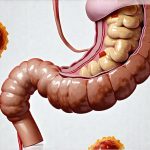The connection between our minds and guts is far more profound than many realize. While we often think of stress as primarily affecting our mental state – leading to anxiety, worry, or even depression – its impact frequently extends into the physical realm, manifesting in a variety of digestive issues. Among these, experiencing loose bowels triggered by emotional eating when stressed is remarkably common yet often misunderstood. It’s not simply about “nervousness” causing a quick trip to the bathroom; it’s a complex interplay between the nervous system, hormones, gut microbiota, and our dietary choices under duress. This can create a frustrating cycle where stress leads to unhealthy eating habits, which then exacerbate digestive discomfort, further fueling anxiety and perpetuating the pattern.
Understanding this phenomenon requires moving beyond simplistic explanations. It’s about recognizing that emotional eating isn’t a character flaw; it’s often a coping mechanism developed over time, offering temporary comfort in response to difficult emotions. When stress hits, our brains can crave readily available rewards – typically foods high in sugar, fat, or both – because these trigger the release of dopamine, creating a fleeting sense of pleasure and distraction. However, these same foods can also wreak havoc on the digestive system, especially when consumed rapidly and in large quantities. The resulting loose bowels aren’t merely an inconvenience; they’re a signal that our bodies are struggling to cope with both emotional and physiological stress. This article will delve into this intricate relationship, exploring the mechanisms at play, common triggers, and strategies for managing it effectively.
Stress-Induced Emotional Eating & Gut Function
Emotional eating is rarely about physical hunger; it’s driven by emotions. Stress, anxiety, sadness, boredom – these are all powerful catalysts that can lead us to seek solace in food. The foods we crave during times of stress often aren’t the most nutritious choices. Instead, they tend to be “comfort foods” – those with high levels of sugar, fat, or salt which activate reward pathways in the brain and provide a temporary sense of well-being. This is because these foods trigger dopamine release, momentarily masking unpleasant feelings. But this immediate gratification comes at a cost:
- Rapid digestion: Foods high in simple sugars and fats are digested quickly, leading to osmotic imbalances in the gut.
- Increased intestinal motility: Stress hormones like cortisol can directly accelerate movement through the digestive tract.
- Microbiota disruption: Poor dietary choices associated with emotional eating can negatively impact the balance of bacteria in our gut, potentially exacerbating symptoms.
The gastrointestinal (GI) system is incredibly sensitive to stress. The brain and gut are connected via the “gut-brain axis,” a bidirectional communication network that allows constant interplay between both systems. When we experience stress, the hypothalamic-pituitary-adrenal (HPA) axis activates, releasing cortisol – the primary stress hormone. Cortisol isn’t inherently bad; it’s crucial for survival in acute situations. However, chronic or repeated activation of the HPA axis can disrupt normal gut function, leading to inflammation and increased intestinal permeability (“leaky gut”). This allows undigested food particles and toxins to enter the bloodstream, potentially triggering immune responses and worsening digestive symptoms. The cycle of stress-induced eating then becomes self-reinforcing.
Furthermore, the specific foods chosen during emotional eating can significantly contribute to loose bowels. Foods high in fructose or artificial sweeteners, for example, are poorly absorbed by some individuals, drawing water into the intestines and causing diarrhea. Dairy products can also trigger symptoms in those with lactose intolerance. Even seemingly innocuous foods like caffeine can stimulate bowel movements. The combination of stress hormones, rapid digestion, and potentially irritating food choices creates a perfect storm for digestive upset. If you experience pain after eating it is important to understand the cause.
Identifying Your Triggers & Patterns
One of the first steps toward managing loose bowels triggered by stress-induced eating is to identify your specific triggers and patterns. This requires honest self-reflection and a bit of detective work. Keep a food and mood diary, noting:
- What you ate
- How you were feeling emotionally before, during, and after eating
- Any digestive symptoms that followed
Look for recurring themes. Do you consistently crave sweets when you’re feeling overwhelmed at work? Do salty snacks provide comfort when you’re dealing with relationship stress? Are there specific situations or events that reliably lead to emotional overeating? Recognizing these patterns is crucial because it allows you to anticipate and potentially interrupt the cycle before it begins.
Beyond situational triggers, consider underlying emotional needs that are being met by food. Are you using food to numb uncomfortable feelings? To reward yourself for enduring a difficult day? To fill a void or sense of emptiness? Understanding the emotional function of your eating habits can help you find healthier coping mechanisms. It’s not about eliminating comfort foods entirely, but about addressing the underlying needs they’re attempting to fulfill.
Finally, pay attention to the types of foods you gravitate towards during times of stress. Are there specific ingredients or food groups that consistently cause digestive problems? Identifying these individual sensitivities can help you make more informed dietary choices and reduce your risk of experiencing loose bowels. This might involve experimenting with elimination diets (under professional guidance) or simply paying closer attention to how different foods affect your body. Understanding hidden gut issues is also crucial in this process.
The Role of Gut Microbiota & Inflammation
The gut microbiota – the trillions of bacteria, fungi, viruses, and other microorganisms that reside in our digestive tract – plays a pivotal role in overall health and well-being. Stress and poor dietary choices can significantly disrupt this delicate ecosystem, leading to dysbiosis – an imbalance in the microbial community. Dysbiosis is associated with increased intestinal permeability, inflammation, and impaired digestion. When the gut barrier is compromised, it allows harmful substances to enter the bloodstream, triggering immune responses and potentially exacerbating digestive symptoms like loose bowels.
Inflammation is a key component of this process. Chronic stress promotes low-grade systemic inflammation throughout the body, including in the gut. A diet high in processed foods, sugar, and unhealthy fats further fuels this inflammatory response. This creates a vicious cycle where inflammation disrupts gut function, leading to digestive discomfort, which then increases stress levels, perpetuating the inflammation.
Restoring balance to the gut microbiota can be a powerful strategy for managing these symptoms. This involves:
- Consuming a diet rich in fiber from fruits, vegetables, and whole grains – fiber acts as food for beneficial bacteria.
- Incorporating fermented foods like yogurt (with live cultures), kefir, sauerkraut, and kimchi – these introduce probiotics, which are live microorganisms that can help repopulate the gut with healthy bacteria.
- Managing stress levels through techniques like mindfulness, meditation, or yoga – reducing cortisol levels can minimize disruption to the gut microbiota.
GI diagnostics are also helpful in understanding your specific gut health.
Mindful Eating & Alternative Coping Strategies
Mindful eating is a practice that encourages you to pay attention to your food and eating experience without judgment. It involves slowing down, savoring each bite, and noticing both physical and emotional cues of hunger and fullness. This can be particularly helpful for breaking the cycle of emotional eating because it allows you to become more aware of why you’re eating and whether you’re truly hungry or simply responding to an emotional trigger.
Here are some strategies to incorporate mindful eating:
- Eliminate distractions – turn off the TV, put away your phone, and focus solely on your meal.
- Eat slowly – chew your food thoroughly and savor each bite.
- Pay attention to your body’s signals – stop eating when you feel comfortably full, not stuffed.
Beyond mindful eating, it’s essential to develop alternative coping strategies for managing stress. This might involve:
- Exercise: Physical activity is a natural stress reliever that releases endorphins and improves mood.
- Social connection: Spending time with loved ones can provide emotional support and reduce feelings of isolation.
- Creative expression: Engaging in activities like painting, writing, or music can offer a healthy outlet for emotions.
- Professional help: If you’re struggling to manage stress and emotional eating on your own, consider seeking guidance from a therapist or counselor. Don’t hesitate to reach out for support. Understanding tests that back up intuitive eating can also be helpful.
Ultimately, addressing loose bowels triggered by stress-induced eating requires a holistic approach that considers the interplay between mind, body, and emotions. It’s about understanding your triggers, restoring gut health, and developing healthier coping mechanisms for managing stress. This isn’t a quick fix; it’s an ongoing process of self-awareness and mindful choices. You can also find helpful eating templates to support your journey, as well as daily eating maps. Finally, it’s important to be aware of insurance coverage for diagnostic testing.


















